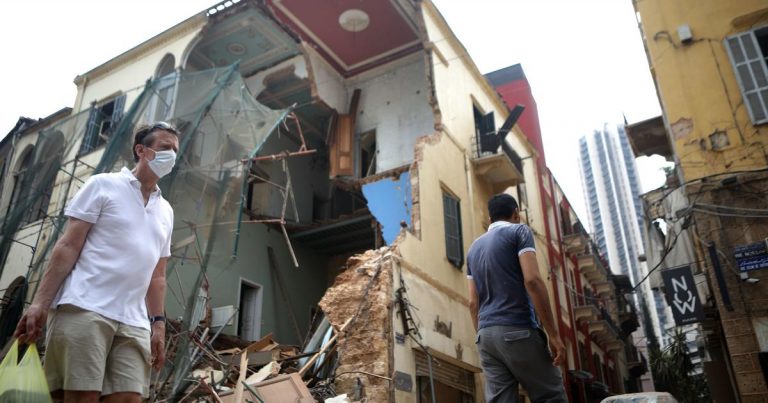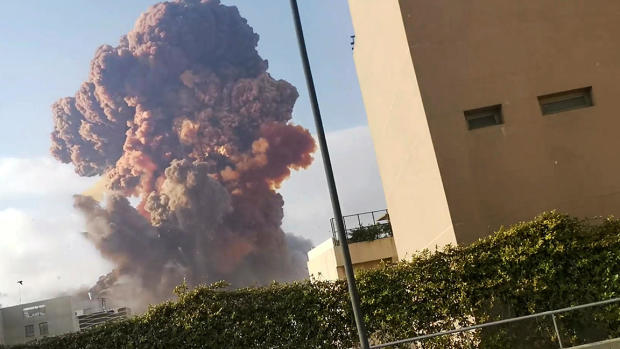
The blast that shook the Lebanese capital Beirut on Tuesday evening may have been the last straw for the people of the city.
Beirut, once known as the Paris of the Middle East, was a vibrant and elegant city for much of the 20th century. Its people are known for their education and resilience. But over the past 50 years, they sustained a civil war, the rise of the militant group Hezbollah, and most recently the Syrian refugee crisis. The government is notorious for corruption.
Then came Tuesday’s massive explosion, which destroyed much of its port and damaged many of the city’s iconic and historic neighborhoods, as well as residential buildings, hospitals and businesses. About a quarter of a million people lost their homes.
Even before the blast, however, the country of 6 million was suffering through an economic recession. Banks limited withdrawals to $200 per week — at most.
Now the citizens are stuck. “I can’t stay here any longer, I want to get out,” said Nour Al-Amiri, a distant cousin of this writer. She has a double nationality — Lebanese and Canadian — but can’t access her savings to leave.
PATRICK BAZ/AFP via Getty Images
For some, the only solution is for the country to start fresh and give up its national independence to France, which controlled it for 20 years after World War I. More than 60,000 people signed an online petition launched this week to “Place Lebanon under a French mandate for the next 10 years.”
In a phone interview with CBS News, Maha AlJamal Dilati, a mother of four kids in their 20s, recalled that she was with her family and guests at her apartment in the Mar Elias neighborhood, approximately 6 miles away from the site of the explosion.
“We felt a shake and books started falling from the shelves, moments later we heard the big blast and all the windows suddenly shattered on the floor.” She and her family were not harmed, but she is not optimistic about their prospects.
“I see no future for my children here, I want them to leave,” she said.
